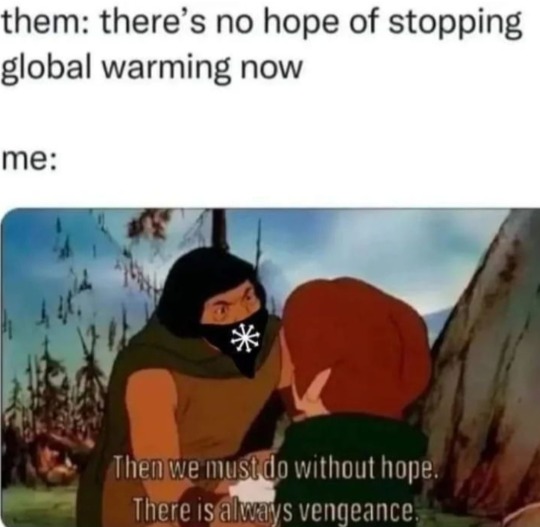#climate
Text

So it turns out that ChatGPT not only uses a ton shit of energy, but also a ton shit of water. This is according to a new study by a group of researchers from the University of California Riverside and the University of Texas Arlington, Futurism reports.
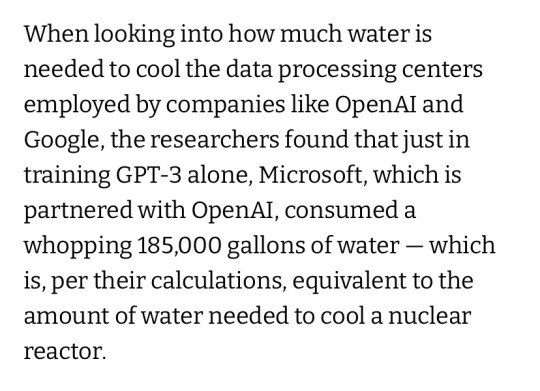
Which sounds INSANE but also makes sense when you think of it. You know what happens to, for example, your computer when it’s doing a LOT of work and processing. You gotta cool those machines.
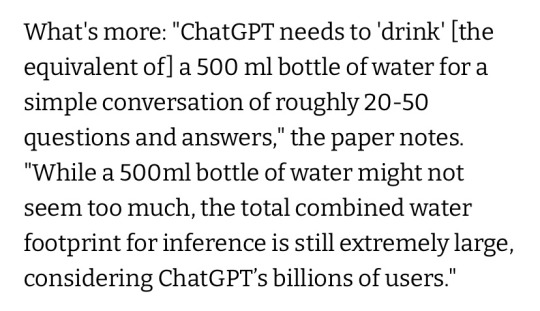
And what’s worrying about this is that water shortages are already an issue almost everywhere, and over this summer, and the next summers, will become more and more of a problem with the rising temperatures all over the world. So it’s important to have this in mind and share the info. Big part of how we ended up where we are with the climate crisis is that for a long time politicians KNEW about the science, but the large public didn’t have all the facts. We didn’t have access to it. KNOWING about things and sharing that info can be a real game-changer. Because then we know up to what point we, as individuals, can have effective actions in our daily lives and what we need to be asking our legislators for.
And with all the issues AI can pose, I think this is such an important argument to add to the conversation.
Edit: I previously accidentally typed Colorado instead of California. Thank you to the fellow user who noticed and signaled that!
#lem talks#let’s get political#science#science tumblr#politics#research#artificial intelligence#AI#climate#important
38K notes
·
View notes
Text
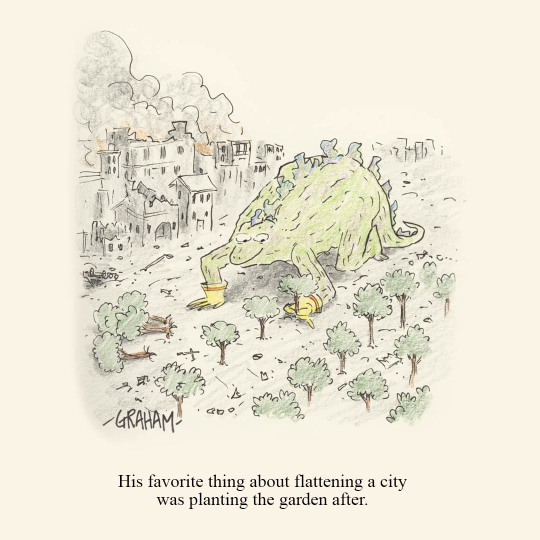
Helping the Earth.
14K notes
·
View notes
Text
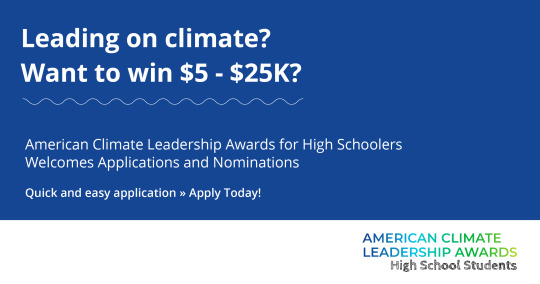
Last call: It's the final week to apply for the American Climate Leadership Awards for High School Students! Apply by Friday, December 15, at midnight PT!
ANNOUNCING: American Climate Leadership Awards has a new category for high school students working towards local climate solutions! @ecoamerica is awarding $125K in cash prizes to student climate leaders. Apply by 12/15: https://ecoamerica.org/american-climate-leadership-awards-high-school-2024/
#ACLA24HighSchoolStudents#ACLA24#high school#high school students#school#education#climate education#environmental education#climate and education#environment and education#climate action#climate and environment#climate#climate and health#climate blog#climate change#climate justice#climate news#weather and climate#environmental news#environment#environmental awareness#environmental activism#environmental justice#environmental#environment protection#environment and health#environmental health
8K notes
·
View notes
Text

Confirmed: Summer 2023 Hottest in NASA’s Record
All three months of summer 2023 broke records. July 2023 was the hottest month ever recorded, and the hottest July. June 2023 was the hottest June, and August 2023 was the hottest August.
NASA’s temperature record, GISTEMP, starts in 1880, when consistent, modern recordkeeping became possible. Our record uses millions of measurements of surface temperature from weather stations, ships and ocean buoys, and Antarctic research stations. Other agencies and organizations who keep similar global temperature records find the same pattern of long-term warming.
Global temperatures are rising from increased emissions of greenhouse gasses, like carbon dioxide and methane. Over the last 200 years, humans have raised atmospheric CO2 by nearly 50%, primarily through the burning of fossil fuels.
Drivers of climate change, both natural and human-caused, leave distinct fingerprints. Through observations and modeling, NASA researchers confirm that the current warming is the result of human activities, particularly increased greenhouse gas emissions.
6K notes
·
View notes
Text
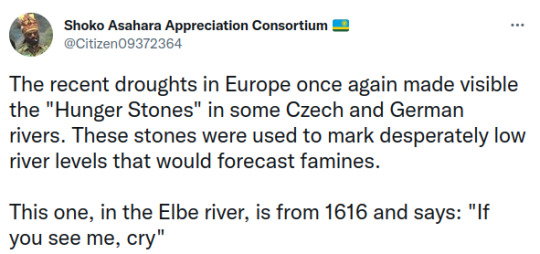


.
39K notes
·
View notes
Text


#keir starmer#leftism#socialism#ecosocialism#environment#environmetalists#climate change#climate crisis#climate#climate action#climate disaster#capitalism#anti capitalism#communism#britain
7K notes
·
View notes
Text
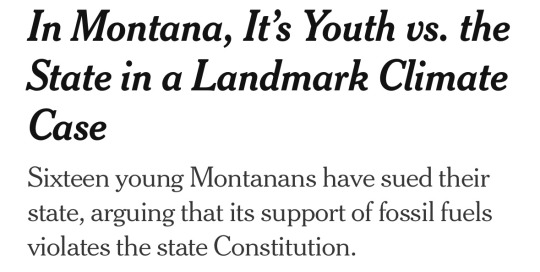
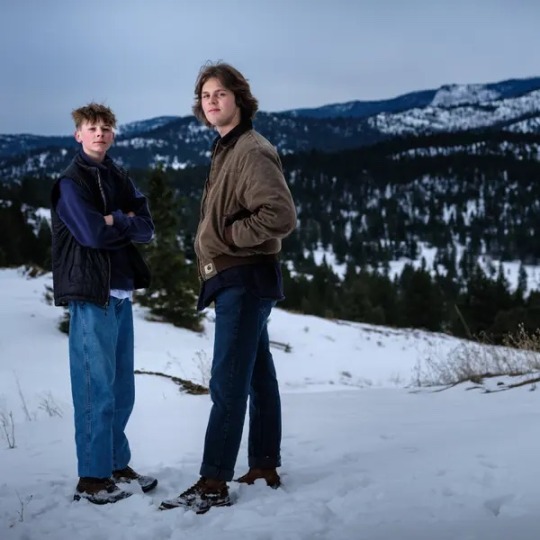
Source
“the young activists seized on language in the Montana state Constitution that guarantees residents ‘the right to a clean and healthful environment,’ and stipulates that the state and individuals are responsible for maintaining and improving the environment ‘for present and future generations.’”
#politics#us politics#Montana#climate#climate justice#gen z#current events#news#environment#environmentalism#environmental justice
12K notes
·
View notes
Text

Trust science, not corporate shills.
1K notes
·
View notes
Text
if you want, tell me where you live (can also just be the country/area) and the percentage! and if this is normal/average for this time of year, if you happen to know
3K notes
·
View notes
Text
Kickstarting the audiobook of The Lost Cause, my novel of environmental hope

Tonight (October 2), I'm in Boise to host an event with VE Schwab. On October 7–8, I'm in Milan to keynote Wired Nextfest.

The Lost Cause is my next novel. It's about the climate emergency. It's hopeful. Library Journal called it "a message hope in a near-future that looks increasingly bleak." As with every other one of my books Amazon refuses to sell the audiobook, so I made my own, and I'm pre-selling it on Kickstarter:
https://www.kickstarter.com/projects/doctorow/the-lost-cause-a-novel-of-climate-and-hope
That's a lot to unpack, I know. So many questions! Including this one: "How is it that I have another book out in 2023?" Because this is my third book this year. Short answer: I write when I'm anxious, so I came out of lockdown with nine books. Nine!
Hope and writing are closely related activities. Hope (the belief that you can make things better) is nothing so cheap and fatalistic as optimism (the belief that things will improve no matter what you do). The Lost Cause is full of people who are full of hope.
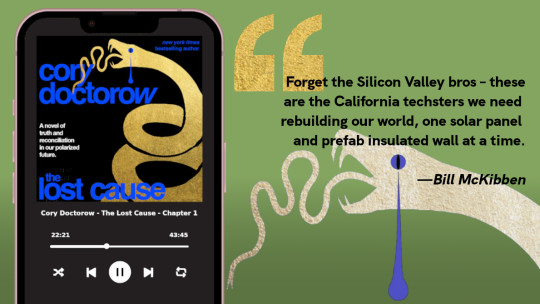
The action begins a full generation after the Hail Mary passage of the Green New Deal, and the people who grew up fighting the climate emergency (rather than sitting hopelessly by while the powers that be insisted that nothing could or should be done) have a name for themselves: they call themselves "the first generation in a century that doesn't fear the future."
I fear the future. Unchecked corporate power has us barreling over a cliff's edge and all the one-percent has to say is, "Well, it's too late to swerve now, what if the bus rolls and someone breaks a leg? Don't worry, we'll just keep speeding up and leap the gorge":
https://locusmag.com/2022/07/cory-doctorow-the-swerve/
That unchecked corporate power has no better avatar than Amazon, one of the tech monopolies that has converted the old, good internet into "five giant websites, each filled with screenshots of the other four":
https://twitter.com/tveastman/status/1069674780826071040
Amazon maintains a near-total grip over print and ebooks, but when it comes to audiobooks, that control is total. The company's Audible division has captured more than 90% of the market, and it abuses that dominance to cram Digital Rights Management onto every book it sells, even if the author doesn't want it:
https://pluralistic.net/2022/07/25/can-you-hear-me-now/#acx-ripoff
I wrote a whole-ass book about this and it came out less than a month ago; it's called The Internet Con and it lays out an audacious plan to halt the internet's enshittification and throw it into reverse:
http://www.seizethemeansofcomputation.org/
The tldr is this: when an audiobook is wrapped in Amazon's DRM, only Amazon can legally remove it. That means that every book I sell you on Audible is a book you have to throw away if you ever break up with Amazon, and Amazon can use the fact that it's hold you hostage to screw me – and every other author – over.
As I said last time this came up:
Fuck that sideways.
With a brick.

My books are sold without DRM, so you can play them in any app and do anything copyright permits, and that means Amazon won't carry them, and that means my publishers don't want to pay to produce them, and that means I produce them myself, and then I make the (significant) costs back by selling them on Kickstarter.
And you know what? It works. Readers don't want DRM. I mean, duh. No one woke up this morning and said, "Dammit, why won't someone sell me a product that lets me do less with my books?" I sell boatloads" of books through these crowdfunding campaigns. I sold so many copies of my last book, *The Internet Con, that they sold out the initial print run in two weeks (don't worry, they held back stock for my upcoming events).
But beyond that, I think there's another reason my readers keep coming back, even though I wrote a genuinely stupid number of books while working through lockdown anxiety while the wildfires raged and ashes sifted down out of the sky and settled on my laptop as I lay in my backyard hammock, pounding my keyboard.
(I went through two keyboards during lockdown. Thankfully, I bought a user-serviceable laptop from Framework and fixed it myself both times, in a matter of minutes. No, no one pays me to mention this, but hot damn is it cool.)
https://pluralistic.net/2022/11/13/graceful-failure/#frame
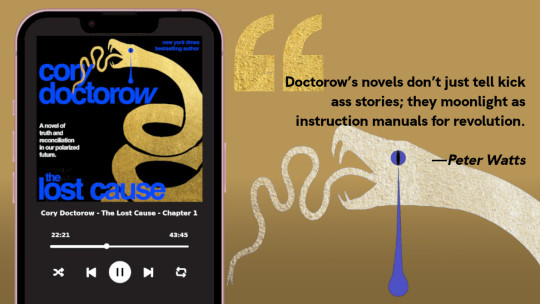
The reason readers come back to my books is that they're full of hope. In the same way that writing lets me feel like I'm not a passenger in life, but rather, someone with a say in my destination, the books that I write are full of practical ways and dramatic scenes in which other people seize the means of computation, the reins of power or their own destinies.
The protagonist of The Lost Cause is Brooks Palazzo, a high-school senior in Burbank whose parents were part of the original cohort of volunteers who kicked off the global transformation, and left him an orphan when they succumbed to one of the zoonotic plagues that arise every time another habitat is destroyed.
Brooks grew up knowing what his life would be: the work of repair and care, which millions of young people are doing. Relocating entire cities off endangered coastlines and floodplains, or out of fire-zones. Fighting floods and fires. Caring for tens of millions of refugees for whom the change came too late.
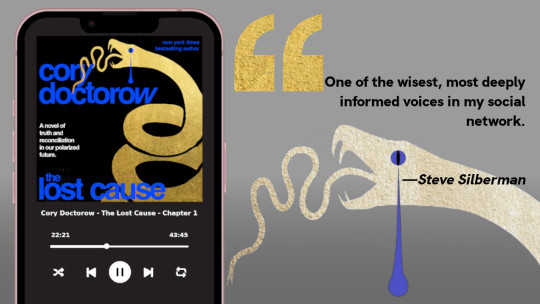
But with every revolution comes a counter-revolution. The losers of a just war don't dig holes, climb inside and pull the dirt down on top of themselves. Two groups of reactionaries – seagoing anarcho-capitalist billionaire wreckers and seething white nationalist militias – have formed an alliance.
They've already gotten their champion into the White House. Next up: dismantling every cause for hope Brooks and his friends have, and bringing back the fear.
That's the setup for a novel about solidarity, care, library socialism, and snatching victory from defeat's jaws. Writing it help keep me sane during the lockdown, and when it came time to record the audiobook, I spent a lot of time thinking about who could read it. I've had some great narrators: Wil Wheaton, @neil-gaiman, Amber Benson, Bronson Pinchot, and more.

I record my audiobooks with Skyboat Media, a brilliant studio near my place in LA. Back in August, I spent a week in their recording booth – "The Tardis" – doing something I'd never tried before: I recorded a whole audiobook, with directorial supervision: The Internet Con:
https://transactions.sendowl.com/products/78992826/DEA0CE12/purchase
When it was done, the director – audiobook legend Gabrielle de Cuir – sat me down and said, "Look, I've never said this to an author before, but I think you should read The Lost Cause. I don't direct anyone anymore except for Wil Wheaton and LeVar Burton, but I would direct you on this one."
I was immensely flattered – and very nervous. Reading The Internet Con was one thing – the book is built around the speeches I've been giving for 20 years and I knew I could sell those lines – but The Lost Cause is a novel, with a whole cast of characters. Could I do it?
Reader, I did it. I just listened to the proofs last week and:
It.
Came.
Out.
Great.
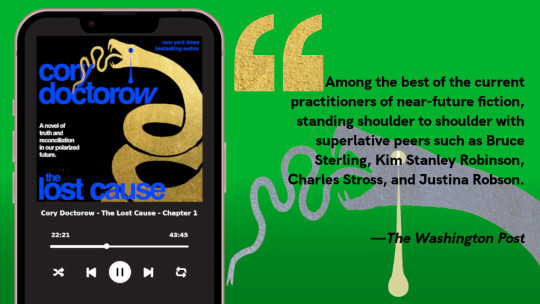
The Lost Cause goes on sale on November 14th, and I'll be selling this audiobook I made everywhere audiobooks are sold – except for the stores that require DRM, nonconsensually shackling readers and writers to their platforms. So you'll be able to get it on Libro.fm, downpour.com, even Google Play – but not Audible, Apple Books, or Audiobooks.com.
But in addition to those worthy retailers, I will be sending out thousands – and thousands! – of audiobook to my Kickstarter backers on the on-sale date, either as a folder of DRM-free MP3s, or as a download code for Libro.fm, to make things easy for people who don't want to have to figure out how to sideload an audiobook into a standalone app.
And, of course, the mobile duopoly have made this kind of sideloading exponentially harder over the past decade, though far be it from me to connect this with their policy of charging 30% commissions on everything sold through an app, a commission they don't receive if you get your files on the web and load 'em yourself:
https://www.kickstarter.com/projects/doctorow/red-team-blues-another-audiobook-that-amazon-wont-sell/posts/3788112
As with my previous Kickstarters, I'm also selling ebooks and hardcovers – signed or unsigned, and this time I've found a great partner to fulfill EU orders from within the EU, so backers won't have to pay VAT and customs charges. The wonderful Otherland – who have hosted me on my last two trips to Berlin – are going to manage that shipping for me:
https://www.otherland-berlin.de/en/home.html
Kim Stanley Robinson read the book and said, "Along with the rush of adrenaline I felt a solid surge of hope. May it go like this." That's just about the perfect quote, because the book is a ride. It's not just a kumbaya tale of a better world that is possible: it's a post-cyberpunk novel of high-tech guerrilla and meme warfare, climate tech and bad climate tech, wildcat prefab urban infill, and far-right militamen who adapt to a ban on assault-rifles by switching to super-soakers full of hydrochloric acid.
It's a book about struggle, hope in the darkness, and a way through this rotten moment. It's a book that dares to imagine that things might get worse but also better. This is a curious emotional melange, but it's one that I'm increasingly feeling these days.
Like, Amazon, that giant bully, whose blockade on DRM-free audiobooks cost me enough money to pay off my mortgage and put my kid through university (according to my agent)? The incredible Lina Khan brought a long-overdue antitrust case against Amazon while her rockstar DoJ counterpart, Jonathan Kanter, is dragging Google through the courts.
The EU is taking on Apple, and French cops are kicking down Nvidia's doors and grabbing their files, looking to build another antitrust case for monopolizing GPUs. The writers won their strike and Joe Biden walked the picket-line with the UAW, the first president in history to join striking workers:
https://doctorow.medium.com/joe-biden-is-headed-to-a-uaw-picket-line-in-detroit-f80bd0b372ab?sk=f3abdfd3f26d2f615ad9d2f1839bcc07

Solar is now our cheapest energy source, which is wild, because if we could only capture 0.4% of the solar energy that makes it through the atmosphere, we could give everyone alive the same energy budget as Canadians (who have American lifestyles but higher heating bills). As Deb Chachra writes in her forthcoming How Infrastructure Works (my review pending): we get a fresh supply of energy every time the sun rises and we only get new materials when a comet survives atmospheric entry, but we treat energy as scarce and throw away our materials after a single use:
https://www.penguinrandomhouse.com/books/612711/how-infrastructure-works-by-deb-chachra/
Anything that can't go on forever will eventually stop. We have shot past many of our planetary boundaries and there are waves of climate crises in our future, but they don't have to be climate disasters. That's up to us – it'll depend on whether we come together to save ourselves and each other, or tear ourselves apart.
The Lost Cause dares to imagine what it might be like if we do the former. We don't live in a post-enshittification world yet, but we could. With these indie audiobooks, I've found a way to treat the terminal enshittification of the Amazon monopoly as damage and route around it. I hope you'll back the Kickstarter, fight enshittification, inject some hope into your reading, and enjoy a kickass adventure novel in the process:
https://www.kickstarter.com/projects/doctorow/the-lost-cause-a-novel-of-climate-and-hope

If you'd like an essay-formatted version of this post to read or share, here's a link to it on pluralistic.net, my surveillance-free, ad-free, tracker-free blog:
https://pluralistic.net/2023/10/02/the-lost-cause/#the-first-generation-that-doesnt-fear-the-future
#pluralistic#audiobooks#the lost cause#crowdfunding#kickstarter#spoken word#climate#climate emergency#monopoly#drm#amazon#audible#skyboat#science fiction#hope not optimism
2K notes
·
View notes
Photo



Diverse Ecosystems Merge in Hyperrealistic Paintings of Flora and Fauna by Lisa Ericson
8K notes
·
View notes
Text
Just spent a couple hours digging into this book. I'm not even sure what has worse environmental impacts, the paper the book is made of or the opinions printed within.
Is "post-colonial" literary theory a joke? It's distressing that a book printed in 2021 by a reputable academic press can be so painfully Eurocentric, and I mean PAINFULLY. The philosophical and literary frameworks drawn upon in most chapters are like what some British guy in 1802 would come up with. In most of the chapters, every framework, terminology, and example is inseparably fused to Latin, Greek, and/or Christian philosophers, myths and texts, even down to the specific turns of phrase. You would think only Europeans had history or ideas until the 20th century.
Don't get me wrong, non-european and even specifically anti-colonial sources are used, and I don't think all the writers are white people, but...that's what's so weird and off-putting about it, most of the book as a whole utterly fails to absorb anything from non-European and in particular anti-colonial points of view. The chapters will quote those points of view but not incorporate them or really give their ideas the time of day, just go right back to acting like Plato and Aristotle and Romantic poets are the gold standard for defining what it means to be human.
In brief, the book is trying to examine how literature can shed light on the climate crisis, which is funny because it completely fails to demonstrate that literature is good or helpful for the climate crisis. Like that is for sure one major issue with it, it shows that people *have* written stuff about climate change, but it sure doesn't convince you that this stuff is good.
Most of the works quoted are rather doomerist, and a lot of the narrative works specifically are apocalypse tales where most of Earth's population dies. The most coherent function the authors can propose that literature fulfills is to essentially help people understand how bad things are. One of the essays even argues that poetry and other creative work that simply appreciates nature is basically outdated, because:
“One could no longer imagine wandering lonely as a cloud, because clouds now jostle in our imaginations with an awareness of atmospheric concentrations of carbon dioxide and other atmospheric pollutants” (Mandy Bloomfield, pg. 72)
Skill issue, Mandy.
The menace of doomerism in fiction and poetry is addressed, by Byron Caminero-Santangelo, on page 127 when he references,
the literary non-fiction of a growing number of authors who explicitly assert, some might even say embrace, the equation between fatalistic apocalyptic narrative and enlightenment…they are authoritative in their rejection of any hope and in their representation of mitigatory action as the cliched moving of deckchairs on a sinking ship
He quotes an essay “Elegy for a country’s seasons” by Zadie Smith, who says: “The fatalists have the luxury of focusing on an eschatological apocalyptic narrative and on the nostalgia of elegy, as well as of escape from uncertainty and responsibility to act." Which is spot-on and accurate, but these observations aren't recognized as a menace to positive action, nor is the parallel to Christian thought that eagerly looks forward to Earth's destruction as a cathartic release from its pain made fully explicit and analyzed. Most of the creative works referenced and quoted in the book ARE this exact type of fatalistic, elegiac performance of mourning.
I basically quit reading after Chapter 11, "Animals," by Eileen Crist, which begins:
The humanization of the world began unfolding when agricultural humans separated themselves from wild nature, and started to tame landscapes, subjugate and domesticate animals and plants, treat wild animals as enemies of flocks and fields, engineer freshwater ecologies, and open their psyches to the meme of the ‘the human’ as world conquerer, ruler and owner.
This is what I'm talking about when I say it's dripping Eurocentrism; these ideas are NOT universal, and it's adding nothing to the world to write them because they fall perfectly in line with what the European colonizing culture already believes, complete with the lingering ghost of a reference to the Fall of Man and banishment from the Garden of Eden. It keeps going:
“Over time, the new human elaborated a view of the animal that ruptured from the totemic, shamanic and relational past.”
Okay so now she's introducing the idea of progression from shamanic nature-worshipping religions of our primitive past...hmm I'm sure this isn't going anywhere bad
“While humanity has largely rejected the colonizing project with respect to fellow humans, the occupation of non-human nature constitutes civilization’s last bastion of ‘normal’ colonialism. A new humanity is bound sooner or later to recognize and overthrow a colonialism of ‘nature,’ embracing a universal norm of interspecies justice.” (pg. 206)
OKAY????
Not only denying that colonialism still exists, but also saying that humans' relationship with nature constitutes colonialism??
Embracing limitations means scaling down the human presence on demographic and economic fronts…(pg.207)
ope, there's the "we have to reduce the human population"
Embracing limitations further mandates pulling back from vast expanses of the natural world, thus letting the lavishness of wild (free) nature rule Earth again” (pg. 207)
aaaaaaand there's the "we have to remove humans from wild nature so it can be freeeeeee"
don't get me wrong like I am a random white person with no particular expertise in anti-colonialist thought but I think this is an easy one. I'm pretty sure if your view of nature is that colonialism involving subjugating humans doesn't exist any more and actually humans existing in and altering nature is the real colonialism so we should remove humans from vast tracts of earth, your opinion is just bad.
Anyways y'all know I have an axe to grind against doomerism so it was probably obvious where this was going but good grief.
554 notes
·
View notes
Text
The graph below, created by Hausfather, a researcher at the climate group Berkeley Earth, shows temperature anomalies, meaning how high each month was above a historical average baseline temperature. Each multicolored line represents a previous year, color coded by decade. (The 1990s, for example, are the lines in yellow.) The solid black line is 2023, and it has been soaring above the others since May. It stops in the month of September, which beat the prior monthly record by more than 0.5° Celsius.
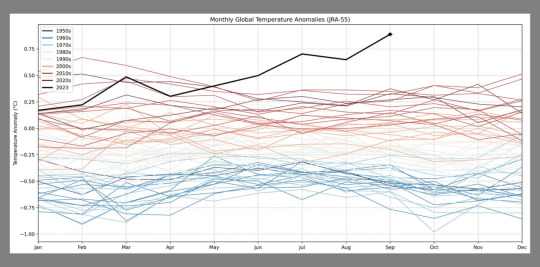
1K notes
·
View notes
Text

Last call: It's the final week to apply for the American Climate Leadership Awards! Apply by Friday, December 15, at midnight PT!
Calling all climate leaders! 2024 marks 5 years of @ecoamerica’s American Climate Leadership Awards, and applications are open now! Your efforts toward climate solutions can earn a share of $175,000! You may be awarded $1,000 just for qualifying as a semifinalist. Apply here for your chance: https://ecoamerica.org/american-climate-leadership-awards-2024/
#ACLA24Leaders#ACLA24#climate leaders#climate solutions#climate action#climate and environment#climate#climate and health#climate blog#climate change#climate justice#climate news#weather and climate#environmental news#environment#environmental awareness#environmental justice#environmental#environment protection#environment and health#environmental health
8K notes
·
View notes
Text
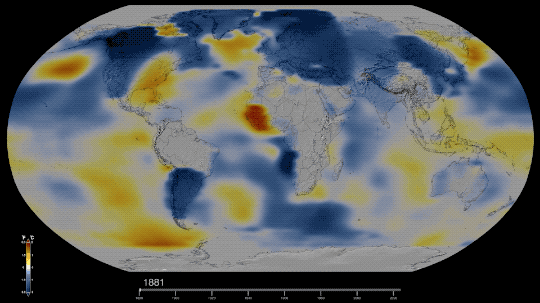
Six Answers to Questions You’re Too Embarrassed to Ask about the Hottest Year on Record
You may have seen the news that 2023 was the hottest year in NASA’s record, continuing a trend of warming global temperatures. But have you ever wondered what in the world that actually means and how we know?
We talked to some of our climate scientists to get clarity on what a temperature record is, what happened in 2023, and what we can expect to happen in the future… so you don’t have to!
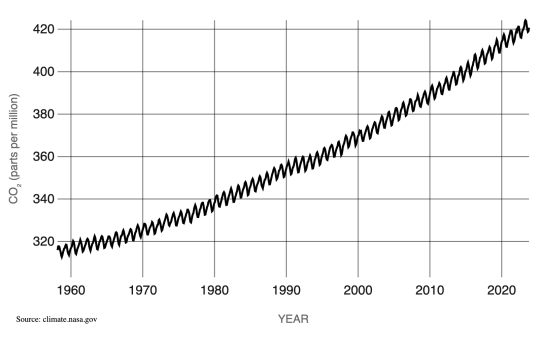
1. Why was 2023 the warmest year on record?
The short answer: Human activities. The release of greenhouse gases like carbon dioxide and methane into the atmosphere trap more heat near Earth’s surface, raising global temperatures. This is responsible for the decades-long warming trend we’re living through.
But this year’s record wasn’t just because of human activities. The last few years, we’ve been experiencing the cooler phase of a natural pattern of Pacific Ocean temperatures called the El Niño Southern Oscillation (ENSO). This phase, known as La Niña, tends to cool temperatures slightly around the world. In mid-2023, we started to shift into the warmer phase, known as El Niño. The shift ENSO brought, combined with overall human-driven warming and other factors we’re continuing to study, pushed 2023 to a new record high temperature.
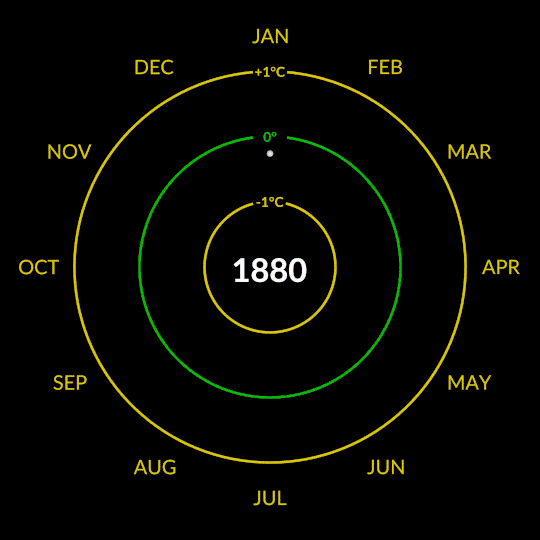
2. So will every year be a record now?
Almost certainly not. Although the overall trend in annual temperatures is warmer, there’s some year-to-year variation, like ENSO we mentioned above.
Think about Texas and Minnesota. On the whole, Texas is warmer than Minnesota. But some days, stormy weather could bring cooler temperatures to Texas while Minnesota is suffering through a local heat wave. On those days, the weather in Minnesota could be warmer than the weather in Texas. That doesn’t mean Minnesota is warmer than Texas overall; we’re just experiencing a little short-term variation.
Something similar happens with global annual temperatures. The globe will naturally shift back to La Niña in the next few years, bringing a slight cooling effect. Because of human carbon emissions, current La Niña years will be warmer than La Niña years were in the past, but they’ll likely still be cooler than current El Niño years.
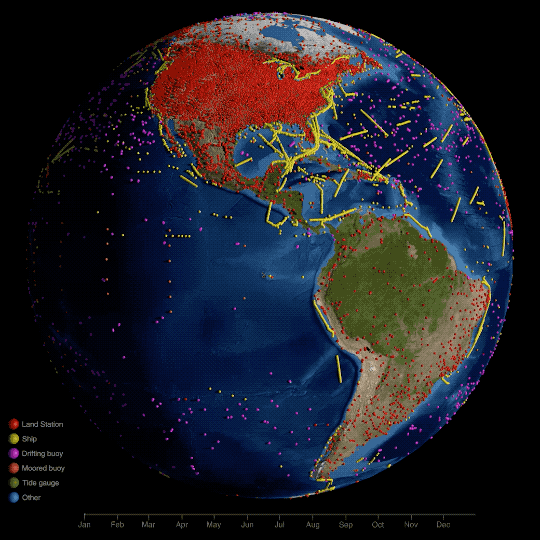
3. What do we mean by “on record”?
Technically, NASA’s global temperature record starts in 1880. NASA didn’t exist back then, but temperature data were being collected by sailing ships, weather stations, and scientists in enough places around the world to reconstruct a global average temperature. We use those data and our modern techniques to calculate the average.
We start in 1880, because that’s when thermometers and other instruments became technologically advanced and widespread enough to reliably measure and calculate a global average. Today, we make those calculations based on millions of measurements taken from weather stations and Antarctic research stations on land, and ships and ocean buoys at sea. So, we can confidently say 2023 is the warmest year in the last century and a half.
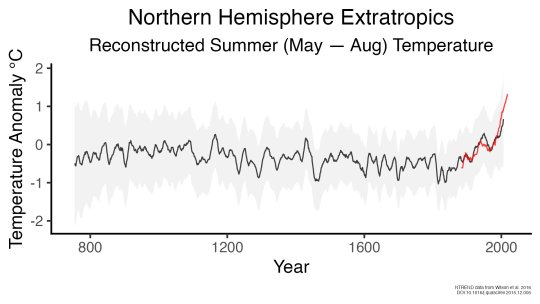
However, we actually have a really good idea of what global climate looked like for tens of thousands of years before 1880, relying on other, indirect ways of measuring temperature. We can look at tree rings or cores drilled from ice sheets to reconstruct Earth’s more ancient climate. These measurements affirm that current warming on Earth is happening at an unprecedented speed.
4. Why does a space agency keep a record of Earth’s temperature?
It’s literally our job! When NASA was formed in 1958, our original charter called for “the expansion of human knowledge of phenomena in the atmosphere and space.” Our very first space missions uncovered surprises about Earth, and we’ve been using the vantage point of space to study our home planet ever since. Right now, we have a fleet of more than 20 spacecraft monitoring Earth and its systems.
Why we created our specific surface temperature record – known as GISTEMP – actually starts about 25 million miles away on the planet Venus. In the 1960s and 70s, researchers discovered that a thick atmosphere of clouds and carbon dioxide was responsible for Venus’ scorchingly hot temperatures.
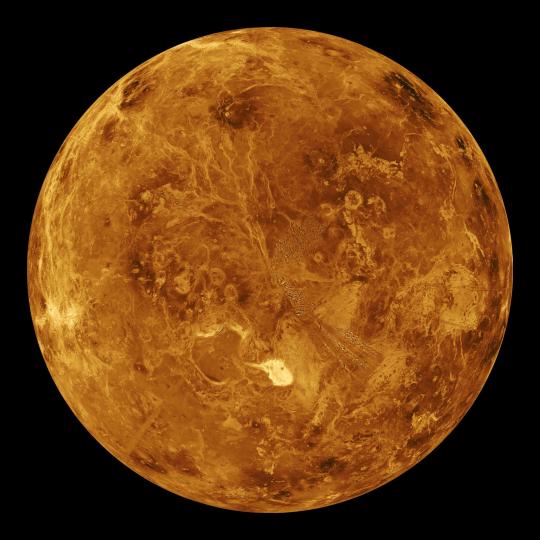
Dr. James Hansen was a scientist at the Goddard Institute for Space Studies in New York, studying Venus. He realized that the greenhouse effect cooking Venus’ surface could happen on Earth, too, especially as human activities were pumping carbon dioxide into our atmosphere.
He started creating computer models to see what would happen to Earth’s climate as more carbon dioxide entered the atmosphere. As he did, he needed a way to check his models – a record of temperatures at Earth’s surface over time, to see if the planet was indeed warming along with increased atmospheric carbon. It was, and is, and NASA’s temperature record was born.
5. If last year was record hot, why wasn’t it very hot where I live?
The temperature record is a global average, so not everywhere on Earth experienced record heat. Local differences in weather patterns can influence individual locations to be hotter or colder than the globe overall, but when we average it out, 2023 was the hottest year.
Just because you didn’t feel record heat this year, doesn’t mean you didn’t experience the effects of a warming climate. 2023 saw a busy Atlantic hurricane season, low Arctic sea ice, raging wildfires in Canada, heat waves in the U.S. and Australia, and more.
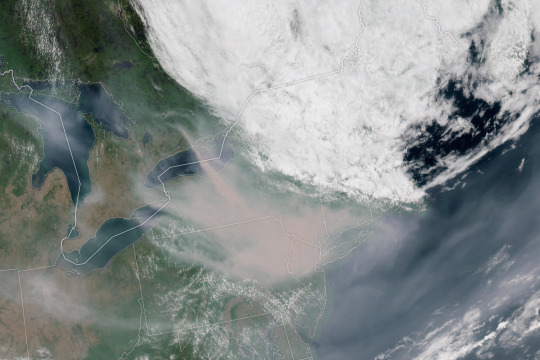
And these effects don’t stay in one place. For example, unusually hot and intense fires in Canada sent smoke swirling across the entire North American continent, triggering some of the worst air quality in decades in many American cities. Melting ice at Earth’s poles drives rising sea levels on coasts thousands of miles away.

6. Speaking of which, why is the Arctic – one of the coldest places on Earth – red on this temperature map?
Our global temperature record doesn’t actually track absolute temperatures. Instead, we track temperature anomalies, which are basically just deviations from the norm. Our baseline is an average of the temperatures from 1951-1980, and we compare how much Earth’s temperature has changed since then.
Why focus on anomalies, rather than absolutes? Let’s say you want to track if apples these days are generally larger, smaller, or the same size as they were 20 years ago. In other words, you want to track the change over time.
Apples grown in Florida are generally larger than apples grown in Alaska. Like, in real life, how Floridian temperatures are generally much higher than Alaskan temperatures. So how do you track the change in apple sizes from apples grown all over the world while still accounting for their different baseline weights?
By focusing on the difference within each area rather than the absolute weights. So in our map, the Arctic isn’t red because it’s hotter than Bermuda. It’s red because it’s gotten relatively much warmer than Bermuda has in the same time frame.
Want to learn more about climate change? Dig into the data at climate.nasa.gov.
Make sure to follow us on Tumblr for your regular dose of space!
3K notes
·
View notes
